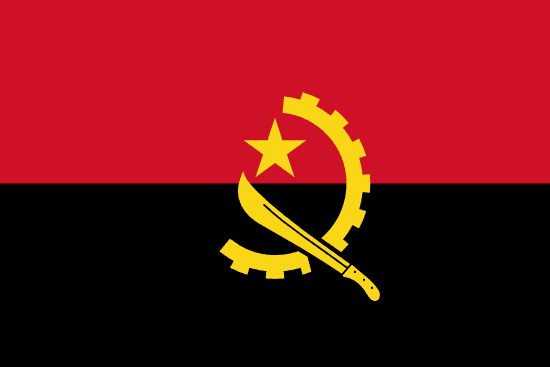"Luanda, a cidade das oportunidades | Luanda, the city of opportunities"
About:
Luanda, the capital of Angola, was founded by Portuguese explorer Paulo Dias de Novais in 1576. It served as a major slave trade center until the 1830s. After Angola's independence from Portugal in 1975, Luanda experienced rapid urban growth and industrialization. Despite civil war (1975-2002), it has become a bustling metropolis, undergoing significant economic and infrastructural development, but also grappling with socio-economic disparities.
When to visit:
Luanda, the capital city of Angola, experiences a tropical savanna climate characterized by distinct wet and dry seasons. The best time to visit Luanda for a holiday is during the dry season, which typically runs from May to September. During this time, visitors can enjoy sunny days with little to no rainfall, making it ideal for exploring the city's attractions and beaches. However, it is important to note that Luanda can be quite hot and humid throughout the year, so visitors should be prepared for these weather conditions.
When to avoid:
The worst time to travel to Luanda, Angola on a holiday is during the rainy season, which typically occurs from November to April. Heavy rainfall and flooding can disrupt travel plans and make outdoor activities challenging. Additionally, high humidity levels during this time can make the weather uncomfortably hot and sticky. It is advisable to avoid traveling to Luanda during the rainy season to ensure a more enjoyable and hassle-free holiday experience.
Rainy Season (Nov-Apr)
Luanda, Angola experiences its wettest season from November to April, with the heaviest rainfall in March. Average daily temperatures range between 24°C-29°C. Rainfall can reach up to 150mm in a month, with frequent afternoon thunderstorms. Despite the rain, sunshine is still abundant, averaging 5-6 hours per day. Cloud cover is more significant during this period, and humidity levels are high. An average day for a visitor would involve warm, humid mornings with potential for heavy rainfall or thunderstorms in the afternoon.
"Hot Season (November–April)"
In Luanda, Angola, the warmest part of the year typically spans from November to April. During this period, daytime temperatures average around 29-31°C (84-88°F), although it can occasionally reach up to 35°C (95°F).
Rainfall is significantly higher in these months, with the peak being in March. You can expect heavy showers, often with thunderstorms. Despite this, there's still a fair amount of sunlight, with an average of 6-7 hours of bright sunshine per day.
Humidity is also high, typically around 80%, which can make the heat feel more intense. Cloudiness varies, but generally, the sky is partly cloudy, contributing to the overall tropical feel of the season.
For a visitor, a typical day would feel hot and humid, with a likelihood of heavy afternoon showers. The mornings often start sunny and bright, with clouds rolling in as the day progresses. Despite the high humidity and rainfall, there are still plenty of opportunities to enjoy the outdoors, especially in the morning hours. The evenings are warm and pleasant, perfect for alfresco dining or a stroll along the beach.
Language:
In Luanda, the capital of Angola, Portuguese is the official and most commonly spoken language. It's used in government, schools, and daily communication. Additionally, a variety of Bantu languages are also spoken, reflecting the country's ethnic diversity. These include Umbundu, Kimbundu, and Kikongo.




